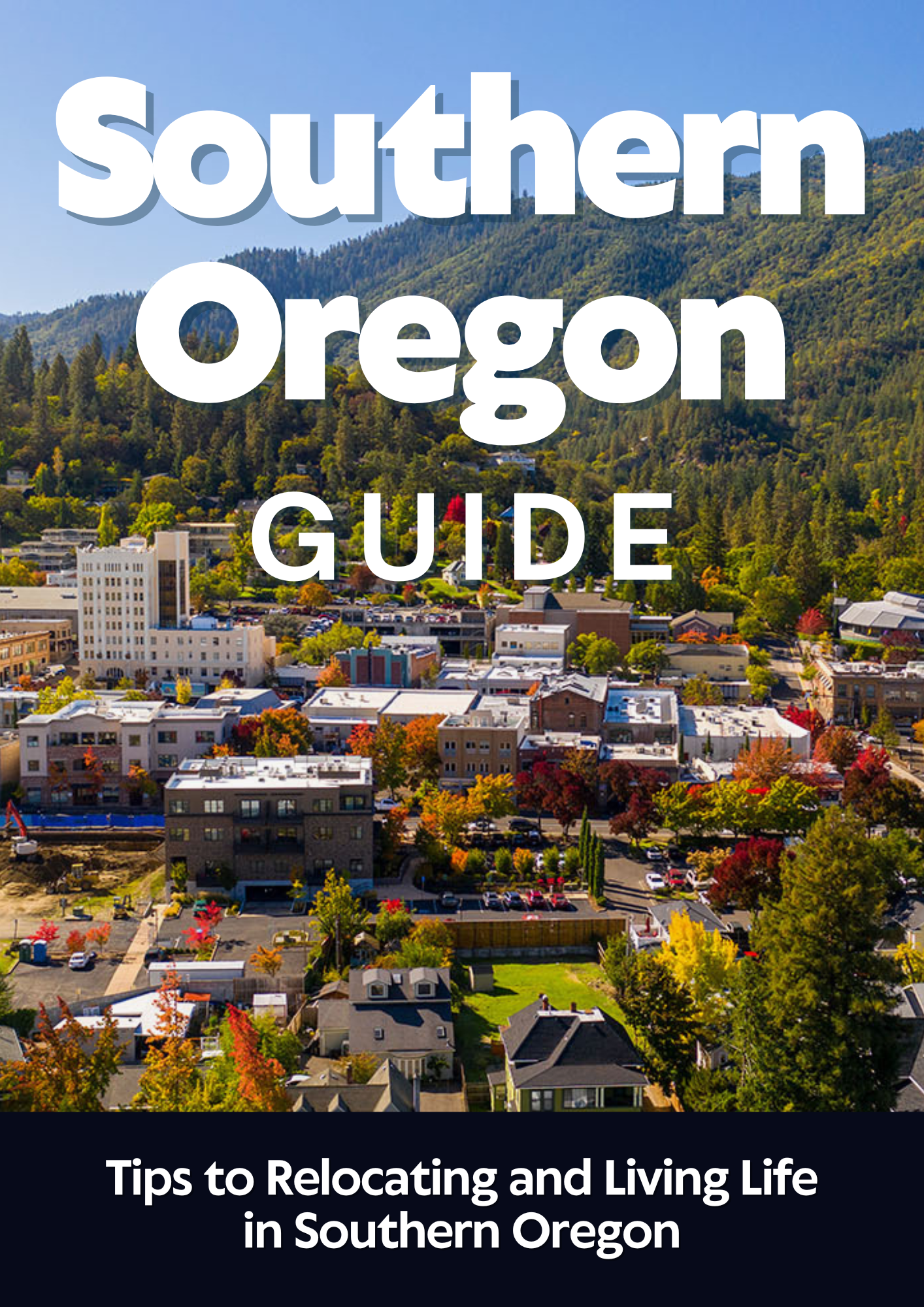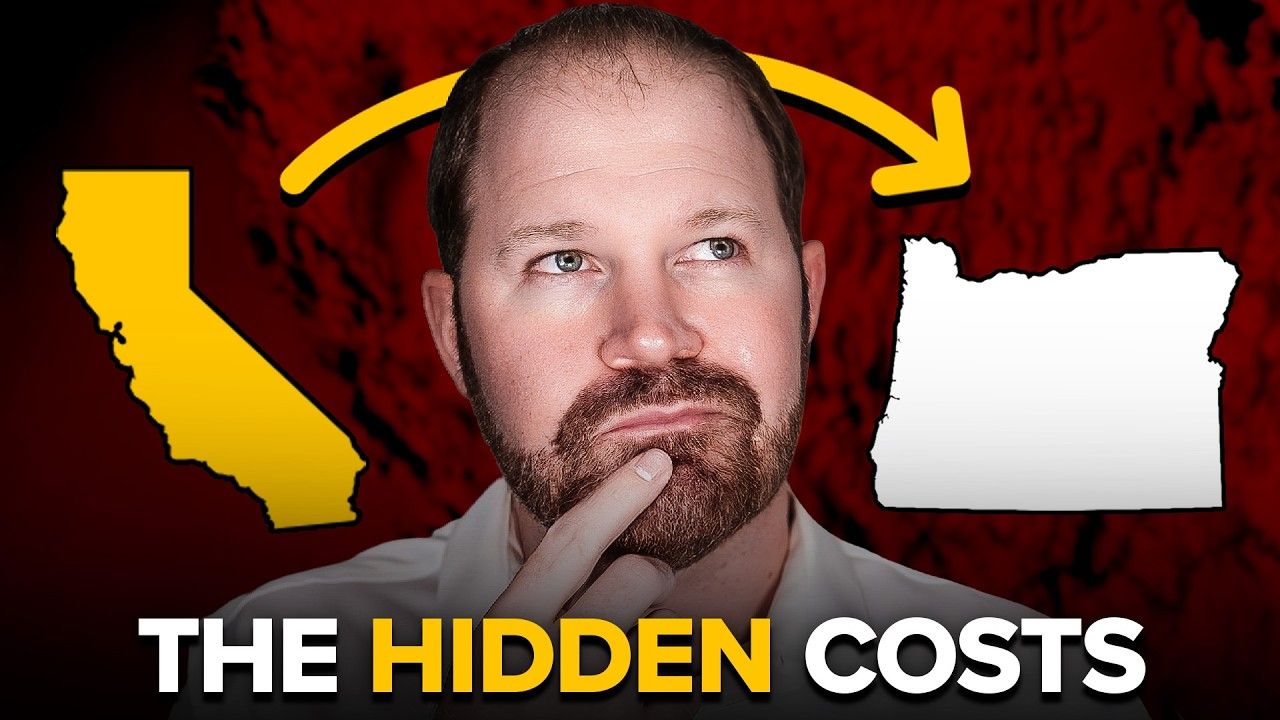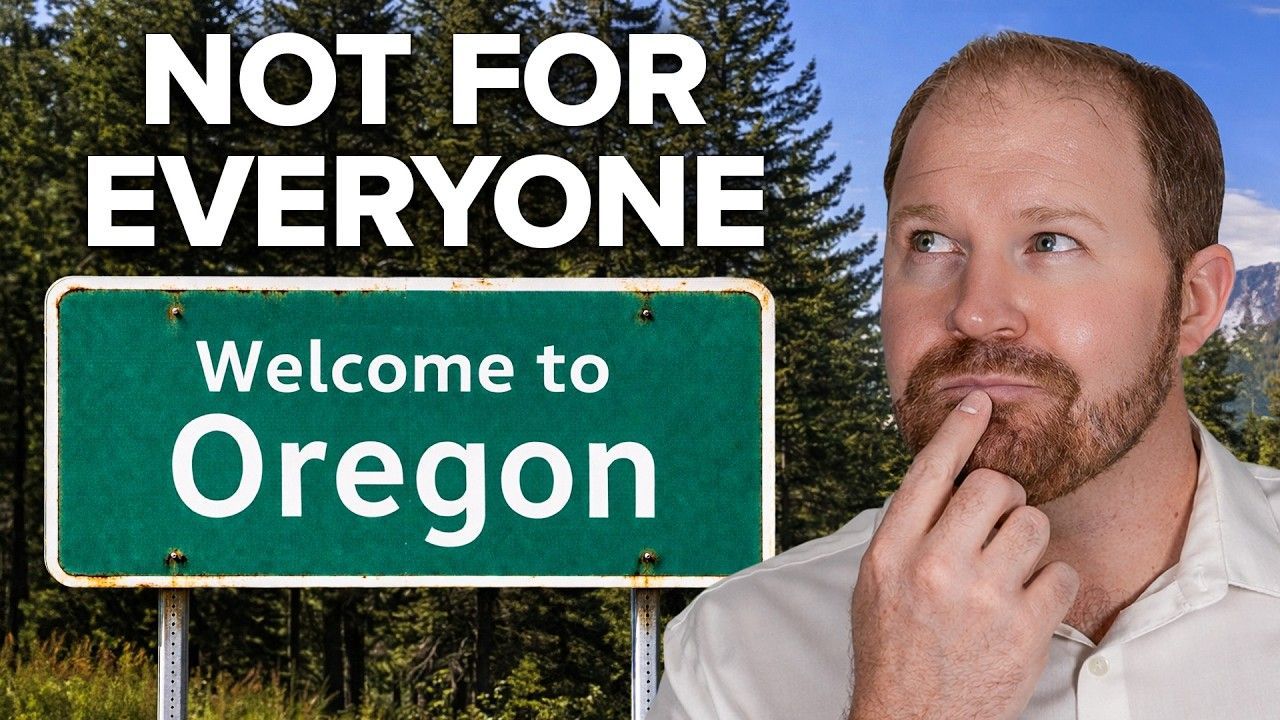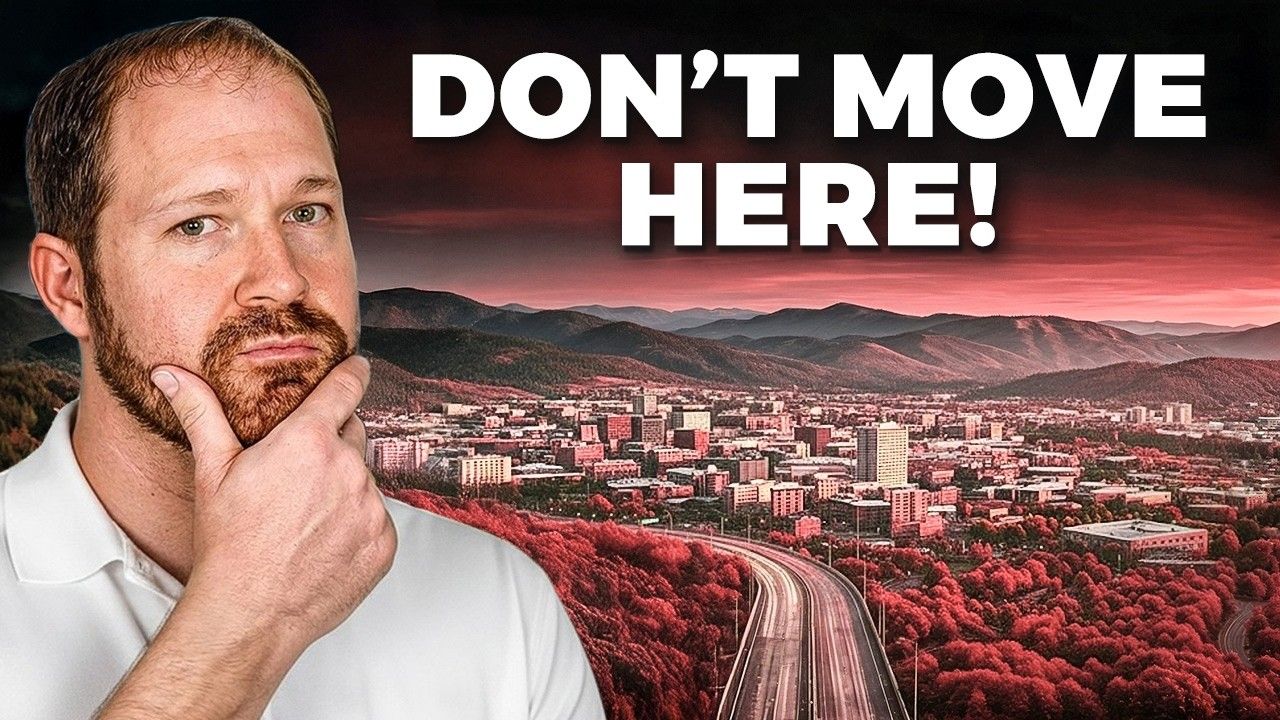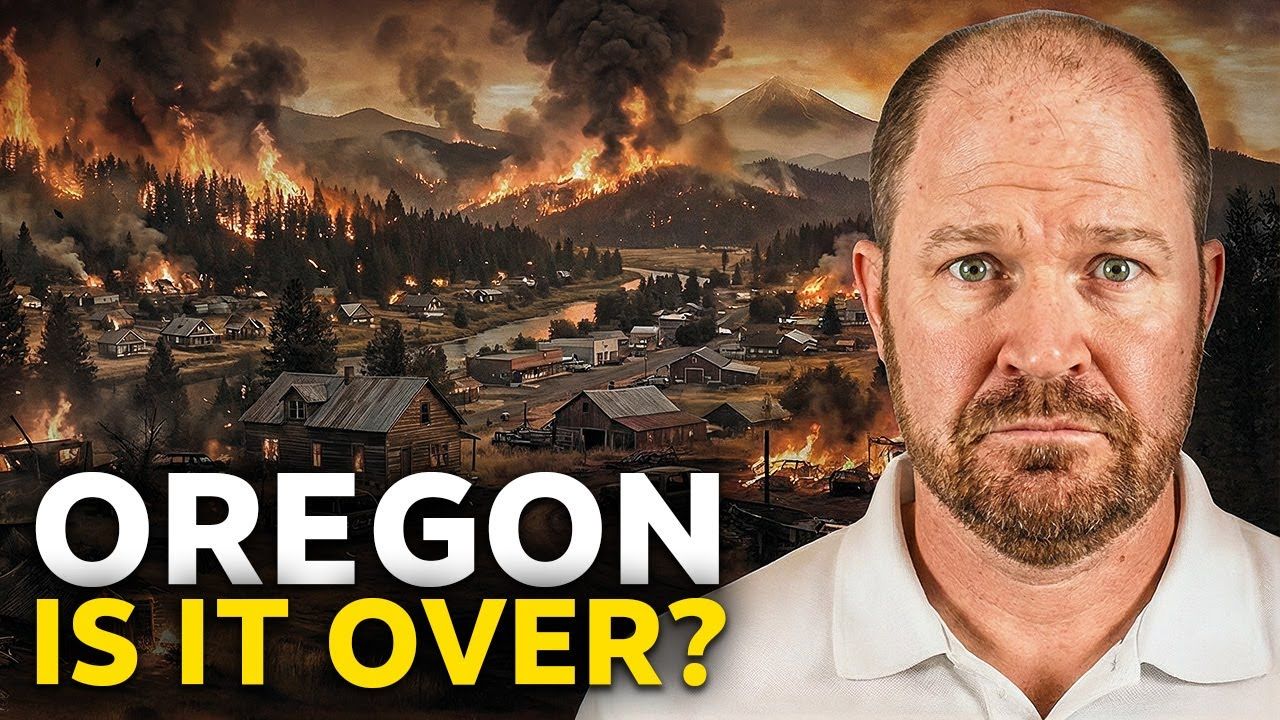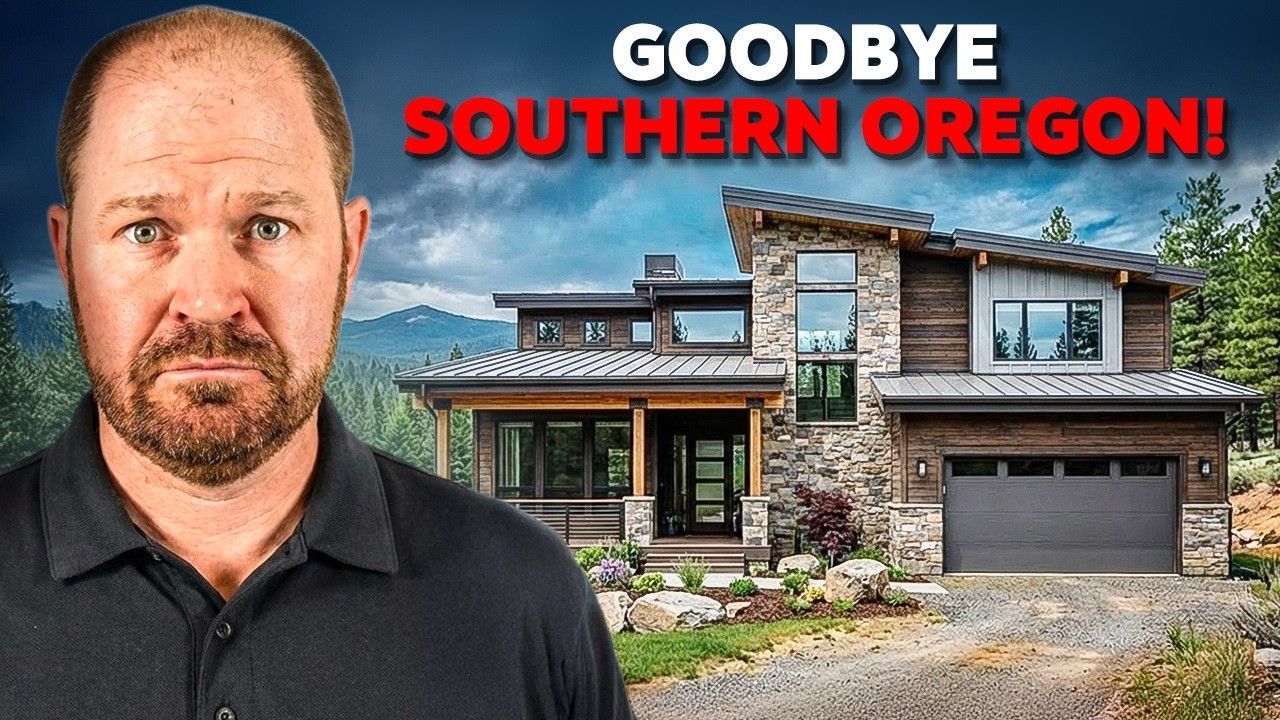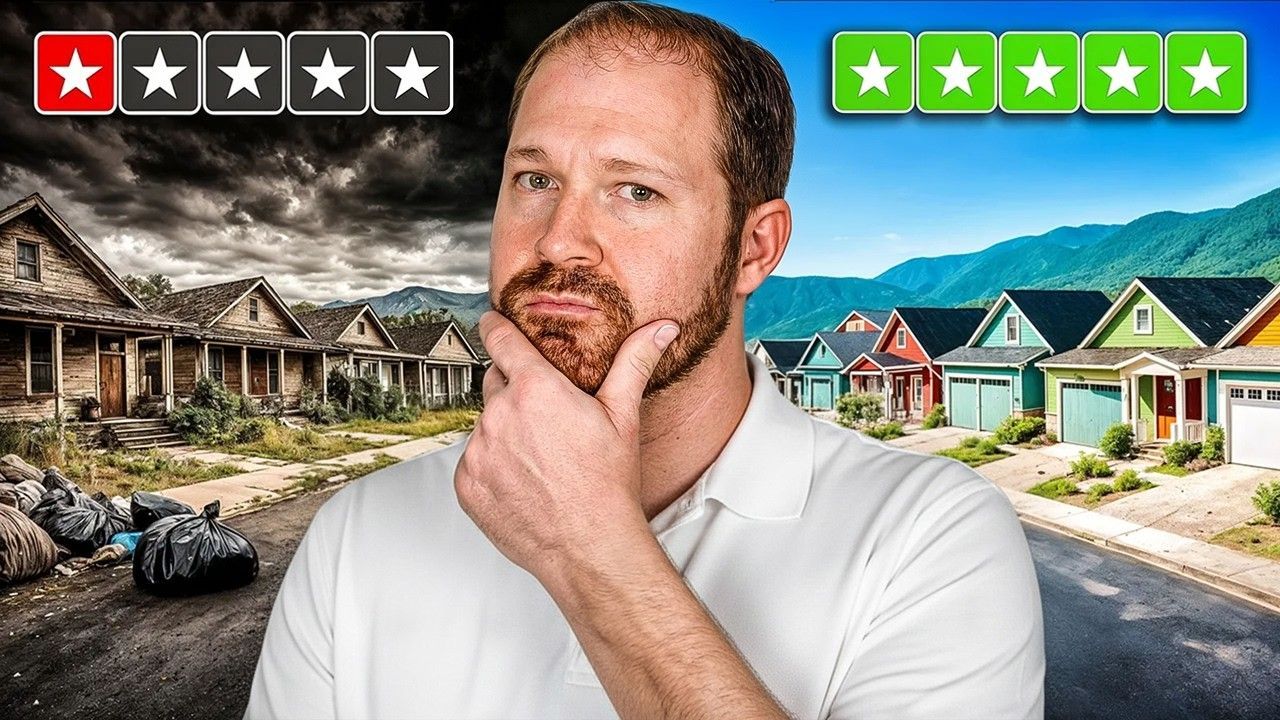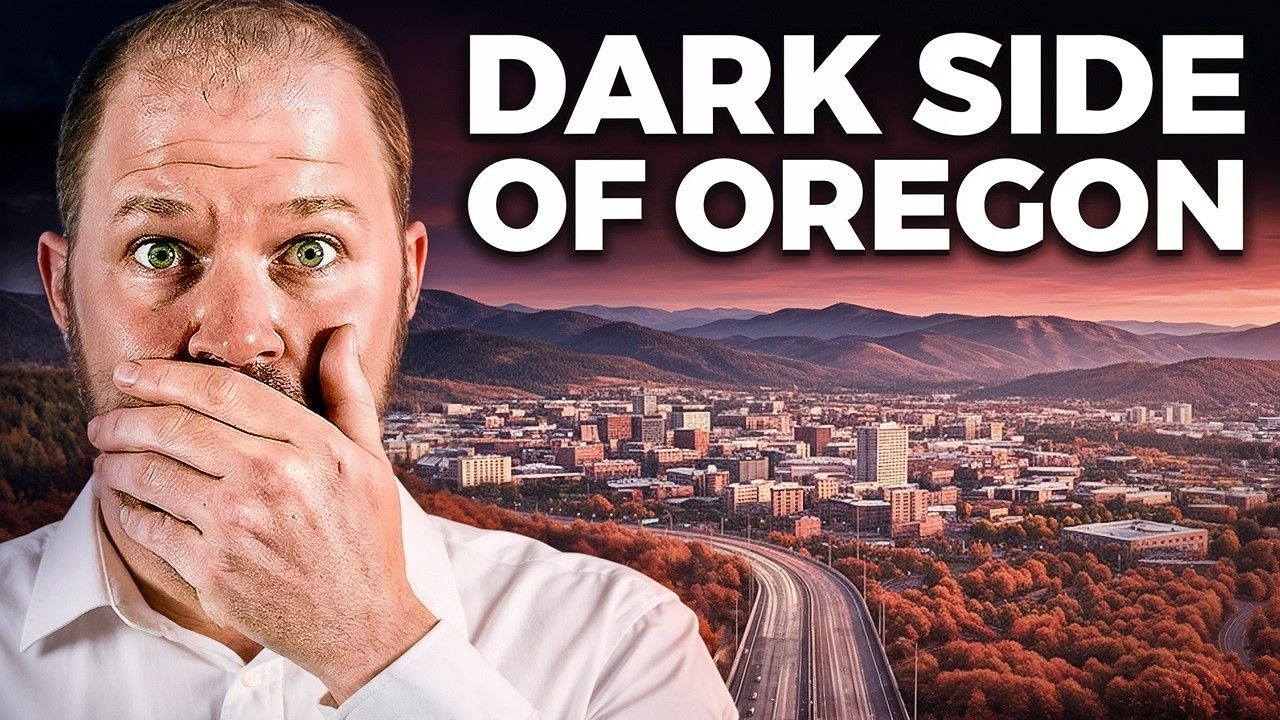The Worst Of Grants Pass: Homelessness, Drugs, And…The REAL Story
In this article I want to walk you through the raw, unvarnished reality I saw when exploring what many people talk about when they think about moving to Grants Pass, Oregon. I made a video on the topic and filmed the parks, the street scenes, and my conversations with local leaders. This write-up expands on that footage and gives you context, facts, photos from the footage, and practical perspective so you can decide whether moving to Grants Pass, Oregon is a good fit for you and your family.
Table of Contents
- Introduction
- Riverside Park
- Reinhart Volunteer Park / All Sports Park
- Gilbert Creek Park
- Tom Pearce Park
- Morrison Centennial Park
- Use of Drugs and Law Enforcement Constraints
- Homelessness in Grants Pass and Oregon: The Bigger Picture
- Housing in Grants Pass: Supply, Zoning, and the Root Causes
- A Possible Solution: Build More Housing, Fast — ADUs and Incentives
- What I Felt on the Ground — My Takeaways
- How to Decide If Moving to Grants Pass, Oregon Is Right for You
- Resources I Referenced
- Closing Thoughts
- FAQs About the Worst Of Grants Pass
- Final Invite
Introduction to the Worst Of Grants Pass
If you’ve seen the headlines about Grants Pass, Oregon, you might think it’s all homelessness and hardship. But the real story is more complex — and worth seeing for yourself. Beyond the controversy lies a community with real character, charm, and challenges that deserve a closer look.
In this post, I’ll take you on an honest tour of Grants Pass — from its well-known parks to the areas often shown in the news — to give you a clearer, on-the-ground view of what life here is really like.
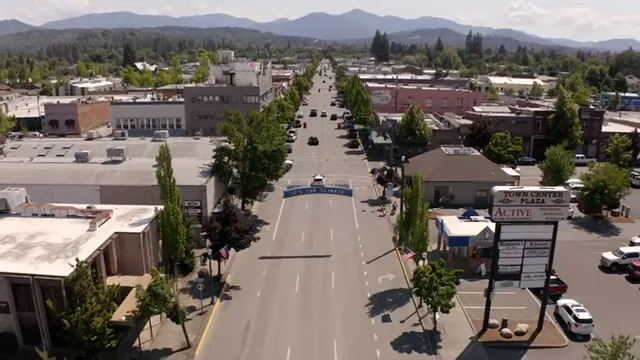
VIEW HOMES FOR SALE IN GRANTS PASS
Riverside Park
Riverside Park sits right along the river and is one of the most iconic public spaces in Grants Pass. If you're considering moving to Grants Pass, Oregon, this park is one of the first places locals bring up as both a beloved amenity and a place where some of the city's biggest public safety concerns have emerged.
Growing up here, lots of folks — myself included — have fond memories of climbing on old logging and mining equipment that used to be displayed in the park. Over time, though, Riverside Park became a focal point of the homelessness conversation in Grants Pass. The park was used as a camping spot and, at times, as a place where illicit activities happened. That tension culminated in a homicide in May of 2023. The event prompted the city to temporarily shut the park down to make changes and address public safety.
After reopening, the city implemented new rules aimed at limiting portable structures like tents near walking paths and playgrounds, and at clarifying expectations for restroom use and similar activities. My personal read after walking the park: it didn't feel overrun or unsafe on the day I visited. That said, perceptions vary — and the images I captured are here for you to judge for yourself if you're thinking about moving to Grants Pass, Oregon.
Reinhart Volunteer Park / All Sports Park
Reinhart Volunteer Park — commonly called the All Sports Park — is one of the largest parks in Grants Pass and a hub for organized activities. If you're moving to Grants Pass, Oregon for family life or recreational opportunities, this park is often cited by residents as a major plus.
I use this park often for filming and family photos. It's right along the river and has amenities for baseball, softball, picnics, and leisurely walks. On multiple visits I didn’t notice tents or camps around Reinhart — it felt active, friendly, and family-oriented. While social media sometimes paints a picture of parks being overrun throughout Grants Pass, the reality at sites like Reinhart is far more ordinary and community-focused.
Gilbert Creek Park
On the north end of town sits Gilbert Creek Park. If you're considering moving to Grants Pass, Oregon and you want a quiet, neighborhood park, Gilbert Creek is one you’ll likely visit. It has tennis courts, a playground, walking paths, and a soccer field.
Because Gilbert Creek has a public restroom and is one of the few parks on that side of town, I expected to see more homeless activity when I visited. I did see evidence that people sometimes camp there or live out of vehicles, but I would not describe it as "overrun." It still functions as a neighborhood park where people play tennis, walk dogs, and take kids to the playground.
Tom Pearce Park
Tom Pearce Park is a Josephine County park just outside the city limits. If you are thinking about moving to Grants Pass, Oregon and prefer a less urban park experience, Tom Pearce is beloved for a reason: new playground equipment, miles of walking paths, river access, and even an 18-hole disc golf course.
The park is a bit off the beaten path, so it doesn’t attract steady tent encampments. Occasionally you’ll see someone living out of a car or a camper, but in my experience the park feels safe, maintained, and family-friendly. Many residents prefer Tom Pearce over downtown parks precisely because it feels spacious and calm.
Morrison Centennial Park
Morrison Centennial Park is on the south side of town and, on the day I filmed, was the place with the most visible camping activity. If you’re moving to Grants Pass, Oregon and you plan to use southside parks, it's worth seeing Morrison Centennial yourself to form your own judgement.
To be clear: there were camps at Morrison Centennial on my visit. Would I pull up with my kids and go to the playground that day? Maybe not — I might choose another park. But I also want to be honest that this was the most concentrated scene I saw across all parks on my visit and it’s what many people mean when they talk about the "worst" parts of Grants Pass.
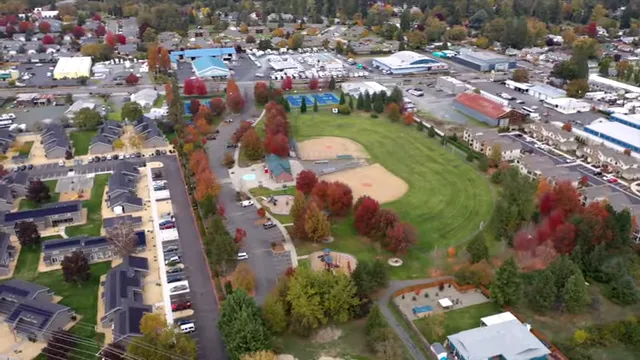
Use of Drugs and Law Enforcement Constraints
One of the most common questions I hear when people are thinking about moving to Grants Pass, Oregon is how law enforcement handles drug use and public safety. There are a few important legal dynamics to understand.
Grants Pass does have local laws against camping in parks and even laws allowing officers to exclude people who have repeated citations. But courts have ruled that criminalizing sleeping in public when people have nowhere else to go can be cruel and unusual punishment. That court interpretation limits how strictly cities can enforce camping bans.
At the same time, officers can enforce laws against specific illegal acts — public urination, drinking in parks, and on-the-record drug dealing are all enforceable. However, Oregon’s recent decriminalization of small possession amounts of various drugs makes enforcement tricky. Possession of small quantities of opioids, heroin, meth, cocaine, and fentanyl is decriminalized in the state. That change makes it difficult for law enforcement to act solely on the basis of possession, and officers have told me off the record that frustration runs high because their hands are tied in many situations.
Homelessness in Grants Pass and Oregon: The Bigger Picture
When people ask whether moving to Grants Pass, Oregon is a good idea given the homelessness headlines, I tell them the local situation can't be divorced from statewide trends. Oregon has long struggled with homelessness — and the roots of the problem are complex.
Here are some of the facts and context I shared in depth when I filmed:
- Oregon ranks fourth in the nation for homeless population per capita, behind Washington DC, California, and Vermont.
- The state has experienced decades of underbuilding relative to population growth. Estimates show Oregon is short roughly 140,000 homes to meet the needs of its current population.
- Policy changes over the last several decades — notably the closure of large psychiatric facilities in favor of community-based treatment that never fully materialized — put pressure on housing and treatment systems and pushed many vulnerable people into homelessness.
- Rising housing costs, especially in the Portland metro area, pushed some people to smaller towns seeking affordability. Some found work and housing; others ended up living outdoors or in vehicles.
All of those factors have a ripple effect. For people considering moving to Grants Pass, Oregon, it’s vital to understand that the homelessness visible in parks and on streets is a symptom of deeper structural problems: a lack of affordable housing, gaps in mental health services, and policy choices that make development harder than it needs to be.
Housing in Grants Pass: Supply, Zoning, and the Root Causes
At the heart of this is housing supply. If you’re moving to Grants Pass, Oregon, you should know why it’s so hard for the state to expand housing quickly and affordably.
Developers — myself included — will tell you that a lot of the problem comes down to red tape and land-use regulations. Oregon has a reputation for strict land-use rules. One organization’s ranking put Oregon at the bottom of the list in the U.S. for ease of land use, which translates into long approval timelines, high fees, and more uncertainty for projects. That combination discourages smaller and medium-sized projects that often create the workforce and affordable housing many communities need.
When housing supply lags demand, rents rise and people who were marginally housed can be pushed into homelessness. That doesn’t happen overnight — it’s a gradual squeeze on low- and median-income households. In smaller towns, vacant homes that might once have been affordable can get converted into short-term rentals, second homes, or otherwise more lucrative uses that remove them from the long-term rental market.
A Possible Solution: Build More Housing, Fast — ADUs and Incentives
One direct and effective way to address homelessness — and to improve affordability for people thinking of moving to Grants Pass, Oregon — is to build more housing, including accessory dwelling units (ADUs).
ADUs are small secondary units on single-family lots. If state and local governments made it easier, faster, and cheaper for homeowners to add ADUs, we’d see more rental units come online without needing huge multi-unit projects. An ADU can provide rental income to a homeowner, make a mortgage more affordable, and add to neighborhood rental supply.
At a policy level, incentivizing developers, streamlining approvals, and reducing arbitrary zoning restrictions would create meaningful new housing supply. Those are the kinds of structural changes that reduce the pipeline into homelessness over time — and that improve everyday life for people who are thinking of moving to Grants Pass, Oregon.
What I Felt on the Ground — My Takeaways
I've walked downtown, toured parks, and talked to law enforcement and neighbors. If you're moving to Grants Pass, Oregon, here’s what I want you to know in plain terms:
- Grants Pass has lovely parks, solid family neighborhoods, and plenty of reasons people choose to move here.
- There are visible homeless camps in some parks and neighborhoods. The most concentrated example I saw was Morrison Centennial Park on the day of filming.
- Many of the headlines and social-media narratives exaggerate the frequency and geographic spread of camps. At several major parks, like Reinhart and Tom Pearce, the vibe was family-friendly.
- Law enforcement can address criminal activity, but broader legal constraints and state policy changes limit how camping and possession are handled.
- The underlying solution to reducing visible homelessness is to create more affordable housing and services — from ADUs to incentives for developers — not just moving people from one place to another.
How to Decide If Moving to Grants Pass, Oregon Is Right for You
If you’re seriously considering moving to Grants Pass, Oregon, the best approach is simple: visit in person, walk the neighborhoods, visit parks at different times of day, and talk to neighbors. Look beyond the headlines and social media. Here are practical steps I recommend:
- Plan a multi-day visit. See the parks, downtown, and residential areas.
- Talk to local business owners and parents at the parks. Ask about school choices, after-school programs, and family activities.
- Check crime and safety stats for the neighborhoods you’re interested in and consider how those numbers compare to other places you’re considering.
- Speak to a local real estate agent who actually lives here and can show you both the highlights and the trade-offs.
- Think about housing options: rental availability, ADU potential, and whether you prefer city services or county settings.
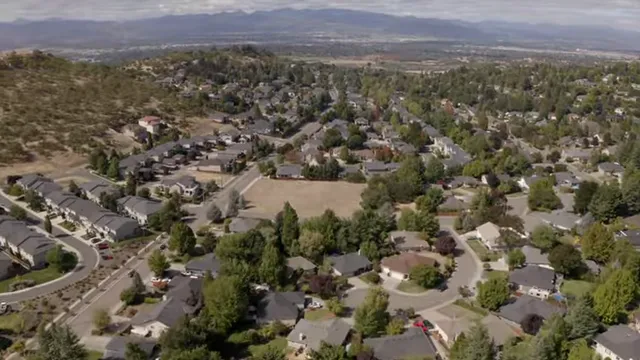
Resources I Referenced
In preparing this piece and the video I made, I referenced reporting from local and regional outlets, research on housing supply, and public policy rankings. I encourage anyone moving to Grants Pass, Oregon to read broadly and understand the policy context:
- Reporting on Oregon’s homelessness history and the shift in mental health care and housing policy.
- Rankings on land-use regulation that show how difficult development can be in Oregon.
- City notices and park-management documents outlining rule changes at parks like Riverside.
DOWNLOAD YOUR FREE RELOCATION GUIDE
Closing Thoughts
I want to be crystal clear: moving to Grants Pass, Oregon is a decision many people make because they love the climate, the river, the access to outdoor recreation, and the hometown feel. At the same time, the city — like many in Oregon — faces real challenges around homelessness and housing supply. Neither perspective negates the other.
If you’re weighing a move, use balanced sources, visit multiple times, and consider both amenities and trade-offs. The parks I visited each told a piece of the story. Riverside and Morrison Centennial showed some of the challenges; Reinhart and Tom Pearce showed the community assets that draw families here. Understanding that whole picture is exactly why I made the video and why I wrote this article: to help you make an informed choice about moving to Grants Pass, Oregon.
VIEW HOMES FOR SALE IN GRANTS PASS
FAQs About the Worst Of Grants Pass
Is Grants Pass safe for families thinking about moving to Grants Pass, Oregon?
Grants Pass has many safe neighborhoods and family-friendly parks, but like any community it has areas with challenges. Visit multiple parks and neighborhoods at different times, and talk to residents to get a sense of safety in the specific part of town you’re considering.
How visible is homelessness if I'm moving to Grants Pass, Oregon?
You will see homelessness in public spaces in Grants Pass, particularly in some parks and along certain corridors. The visibility varies by park and by time; some parks like Morrison Centennial may show more camping on any given day, while others like Reinhart and Tom Pearce feel more family-oriented.
Can law enforcement remove campers from parks if I'm moving to Grants Pass, Oregon?
It’s complicated. Cities can enforce laws against crimes such as public drug dealing, public urination, and disorderly conduct. But criminalizing sleeping in public where people have nowhere else to stay has been ruled unconstitutional in some cases, which limits enforcement options related purely to camping.
Will housing get more affordable if I move to Grants Pass, Oregon?
Housing affordability depends on supply and policy. If local and state governments loosen barriers to development and encourage ADUs and new housing projects, affordability could improve. For now, housing competition in Oregon has tightened with a documented shortage of homes statewide.
What can be done to reduce homelessness in Grants Pass?
Increasing housing supply — including ADUs, incentivizing development, and streamlining approvals — can reduce homelessness over time. Improved access to mental health and addiction treatment services is also critical. Enforcement alone is not a durable solution.
Should I meet a local agent before moving to Grants Pass, Oregon?
Yes. A local agent can help you understand neighborhood differences, explain school districts, identify parks and amenities, and show you both the strengths and trade-offs of properties. Visiting with a local guide can be one of the best ways to determine if moving to Grants Pass, Oregon is right for you.
Final Invite
If you found this helpful and you’re seriously thinking about moving to Grants Pass, Oregon, come visit. Walk the parks, talk to the people who live here, and look at housing options in person. My goal was to show you the real on-the-ground picture — the good and the bad — so you can decide with your own eyes.
Thank you for reading. If you want more neighborhood-level insight about moving to Grants Pass, Oregon or other parts of Southern Oregon, I’m happy to help.

Buying Southern Oregon
At Buying Southern Oregon, we are a dynamic team dedicated to helping you achieve your real estate goals. Combining Brian Simmons’ deep market expertise and Josh Berman’s strong negotiation skills, we provide personalized service and local knowledge to ensure a seamless and rewarding experience. Whether you’re buying, selling, or relocating, we’re here to guide you every step of the way and make your Southern Oregon real estate journey a success.

